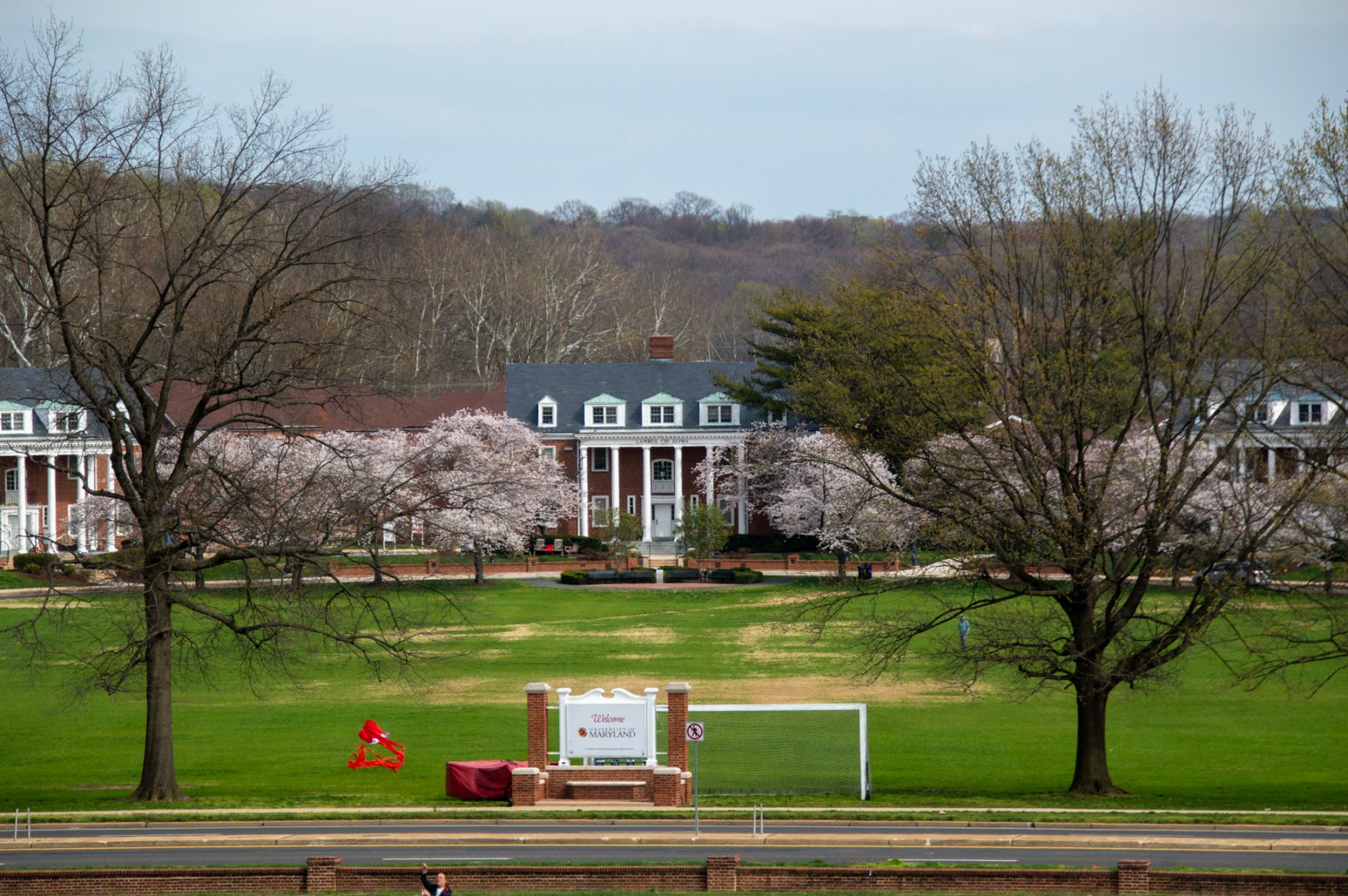The University of Maryland’s Panhellenic Association has been unable to sanction its sorority chapters for COVID-19 violations this academic year, and some community members are concerned that its national governing organization will stymie future sanctioning efforts.
Last semester, the association — a student-run governing body for 16 sororities at this university — unsuccessfully attempted to gain sanctioning authority over COVID-19 violations committed by its chapters. And this semester, the body is making another attempt. However, concerns remain that the National Panhellenic Conference will intervene, just as it did in the fall.
“It seems kind of crazy to us that we aren’t supposed to be able to do anything,” said Katie May, PHA president. “These are our members, and they’re part of the Greek community. They’re part of the UMD community.”
This semester, PHA’s executive board is attempting to use a portion of its current policies to punish violations of COVID-19 guidelines. The section is referred to as the “conduct unbecoming” clause, which states that PHA can sanction chapters for violations “deemed unbecoming of a Panhellenic chapter.”
Under this new strategy, if Ashley Wells — who, as the association’s vice president of accountability, oversees all judicial proceedings — sees evidence of a chapter violating COVID-19 guidelines, she will conduct a hearing for violating the conduct unbecoming clause. The association’s judicial board will then determine if any sanctions are necessary, Wells said.
That way, the association would be able to administer sanctions for entire chapters that have violated COVID-19 guidelines. Individuals could also still be referred to the student conduct office, Wells said.
But Tyler Huddleston, an adviser to the PHA through this university’s Department of Fraternity and Sorority Life, worries the National Panhellenic Conference will intervene.
“If something were to happen this semester and PHA tried to intervene … the NPC would reach out and tell them that the university has the jurisdiction to do that and the PHA does not,” Huddleston said.
[UMD loosens COVID-19 restrictions in dorms]
The national conference could have also overruled last semester’s attempt to sanction chapters for COVID-19 violations, Huddleston said.
In the fall, the association’s executive board attempted to add a bylaw that would have outlined the safety guidelines that chapters need to follow, said Maddie Chaunt, the current vice president of administrative affairs. But the bylaw did not receive enough support from delegates representing the 16 sororities, Chaunt said.
Plus, the National Panhellenic Conference forbids organizations at individual colleges from establishing their own health or risk management policies, Huddleston said. As a result, even if the delegates had approved the measure, the national conference would have overridden the decision, he added.
In a statement, the national conference’s CEO, Dani Weatherford, commended “the seriousness that the Maryland PHA is bringing to its response to the pandemic” but noted that Panhellenic Associations at individual colleges are not the most equipped to administer sanctions.
“While local governmental and university officials with expertise in public health are best positioned to set formal policies and administer sanctions when those policies are violated, we continue to urge College Panhellenics … to help educate members and encourage responsible behaviors,” the statement read.
The potential interference from the national conference has concerned Wells.
“There’s certainly merit to the fact that this is a larger issue than just Greek life,” Wells said. “But because of the fact that you can’t deny that Greek life has played an enormous role in spreading COVID at our school and other schools, it’s irresponsible to prevent student leaders in the Greek community from handling things on the Greek level.”
The university’s Interfraternity Council, which oversees more than 20 social fraternities on the campus, has been using the “conduct unbecoming” aspect of its bylaws to sanction chapters for COVID-19 violations without external interference, said Mike DiDonato, the council’s president.
“It’s been working out well,” DiDonato said. “I think [chapters are] definitely getting the message from the beginning of the year.”
[Residents of UMD sorority house no longer quarantining after COVID-19 test mix-up]
When the Panhellenic Association and the Interfraternity Council receive a report of a potential COVID-19 guideline violation, they are supposed to send it to the university’s student conduct office.
Since the beginning of the fall semester, the IFC has not referred any cases to the student conduct office, according to a university statement. The Panhellenic Association has referred four cases during the spring semester, per the statement.
The student conduct office’s reporting system is evidence-based, so there must be concrete evidence, such as photos or videos, for a sanction to occur, association members said.
“I can be entirely aware of a sorority having a social, but if there’s no pictures, if there’s no screenshots of a text message saying it happened, [I can’t do anything],” Wells said. “Chapters know this, and they won’t have evidence of something happening.”
Since the association’s sanctioning authorities are limited for COVID-19 violations, the body has instead tried to educate and inform chapters to ensure safe behaviors.
The new executive board has required all chapters to send in coronavirus accountability plans — a requirement IFC has had in place in both the fall and spring semesters. Additionally, Wells said she’s been meeting with chapter presidents and distributing a coronavirus policy guide to all chapters.
Still, some college students will continue to violate guidelines, and the evidence requirement for penalties limits the likelihood of sanctioning, association members say.
“We understand that there’s probably [only] so much we can do,” May said. “But we’re trying to exhaust everything so that we know that we did our part, and we did the best that we could to try to keep our community safe.”



